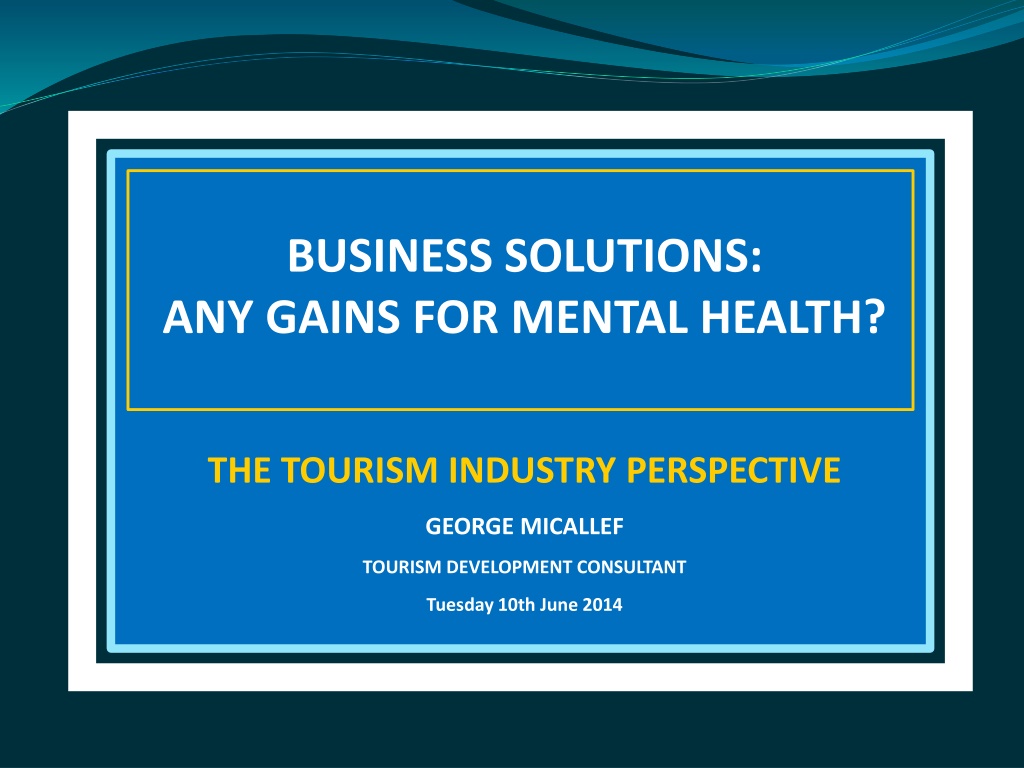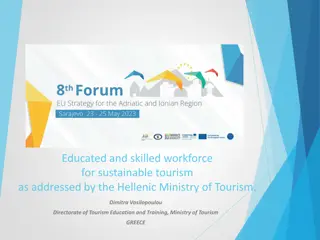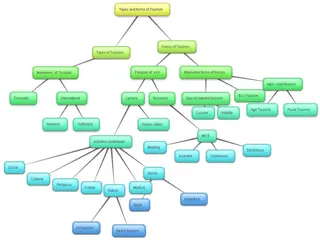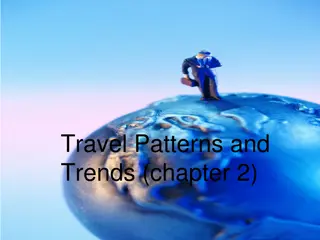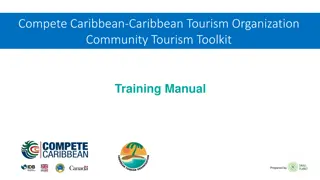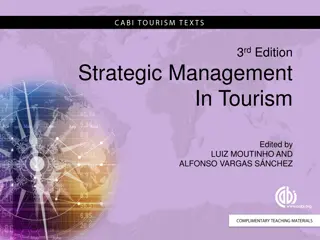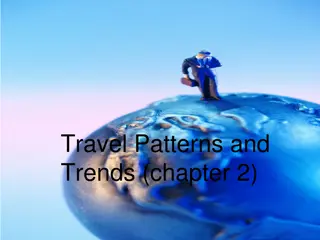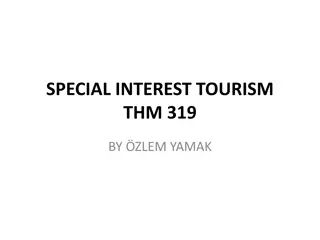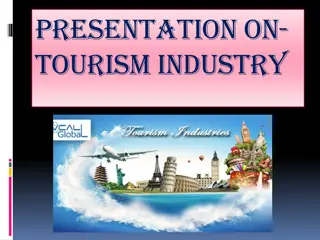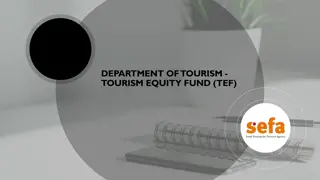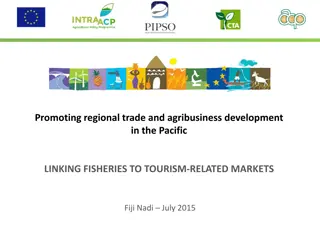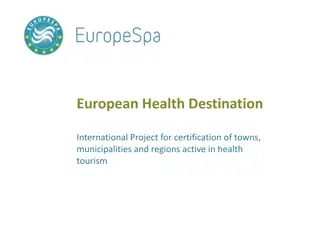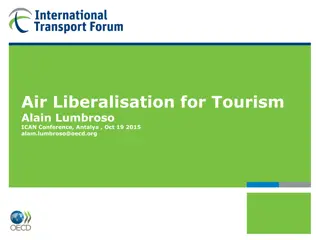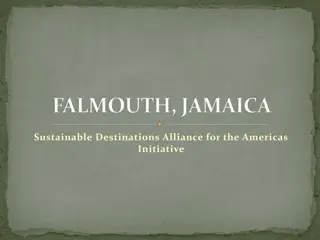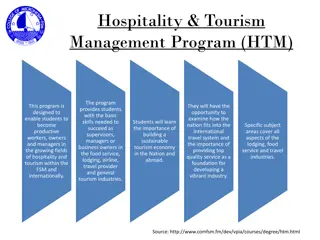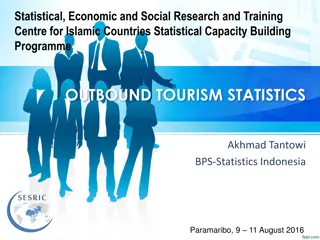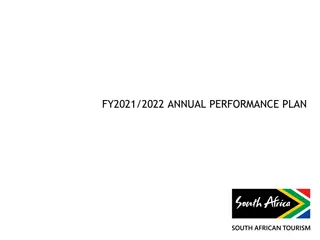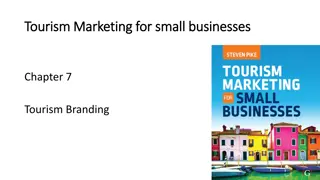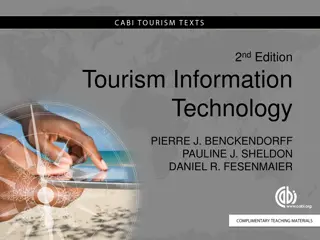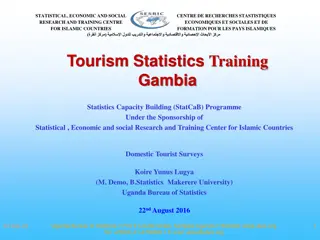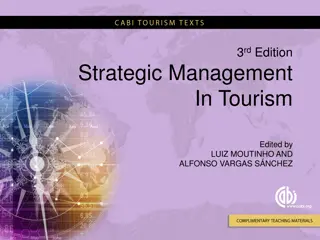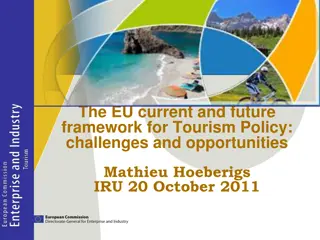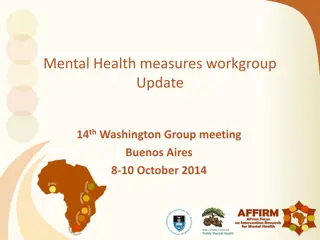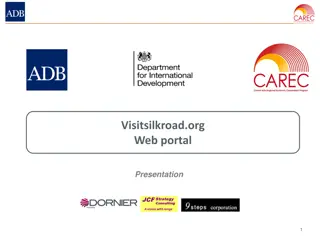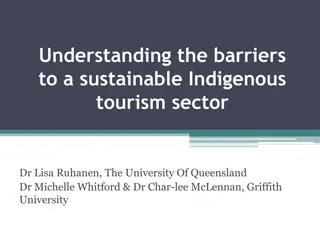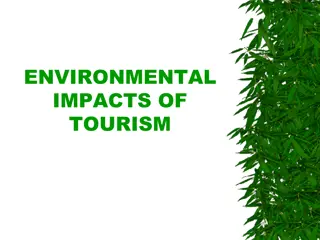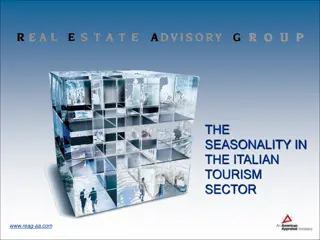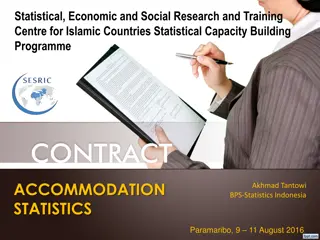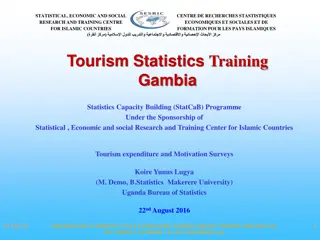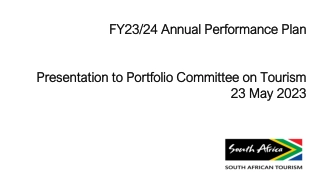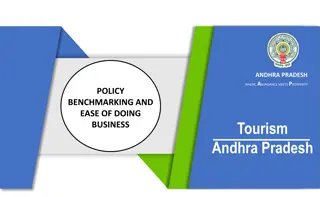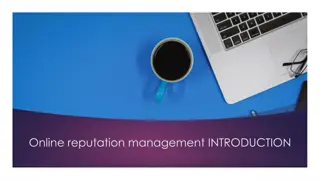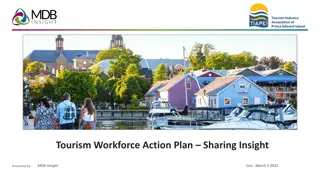Challenges and Strategies in Tourism Development: A Mental Health Perspective
The tourism industry faces various challenges such as economic restructuring, stiffer competition, and higher visitor expectations. In this evolving landscape, it is crucial to adapt to the needs of a new breed of travelers, remain environmentally conscious, and provide innovative products. Success factors include maintaining quality, diversification, and sustainability. As tourism consultants emphasize these points, they also highlight the importance of mental health gains in the industry. Strategies to meet these challenges involve consistent product development, preparedness for negative cycles, and value for money. Looking ahead, the focus is on enhancing the visitor experience and ensuring the industry's sustainability.
Download Presentation

Please find below an Image/Link to download the presentation.
The content on the website is provided AS IS for your information and personal use only. It may not be sold, licensed, or shared on other websites without obtaining consent from the author. Download presentation by click this link. If you encounter any issues during the download, it is possible that the publisher has removed the file from their server.
E N D
Presentation Transcript
BUSINESS SOLUTIONS: ANY GAINS FOR MENTAL HEALTH? THE TOURISM INDUSTRY PERSPECTIVE GEORGE MICALLEF TOURISM DEVELOPMENT CONSULTANT Tuesday 10th June 2014
Facing Tourism Challenges Tourism has undergone a radical change worldwide Malta is no exception! The global economic restructuring, financial constraints, stiffer competition, continuous emerging destinations, seasonality, product improvement, cutting edge technology, a more experienced traveller with higher expectations; and increasing environmental awareness, are changing the profile of our tourism. This will also impact the skills supply in tourism. We need to be prepared to face up to these challenges!
Tourism Product Offer The total visitor s experience Thetourism product is defined as: An amalgamation of different goods and services offered as an activity and experience to a tourist. This implies the need for a comprehensive positive influence on the entire aspects of the visitors stay. Essentially this means that the tourism product offer, represents a range of tangible and intangible elements from which our customers aim to derive satisfaction and enjoyment. This process entails the provision of services to a diverse & multi cultural customer base and the application of a high degree of ethics.
Success Factors Success could be our own worst enemy We need to ensure: No room for Complacency Preparedness for eventual negative cycles Higher visitor expectations higher product delivery Value for money - but remaining competitive Markets diversification Provision of Quality and standards Yield improved profitability to support sustainability of operators in the industry Consistent Product development Watching islands sustainability - through carrying capacity
Meeting the needs of a new breed of Travellers We need to: Adapt to different needs Remain - accessible affordable convenient (within the destination and accommodation offer) Remain environmentally conscious Provide a hassle free experience Remain abreast with technological development & influence of social media Provide new and innovative products - not recycled ones
Looking Ahead In the planning process it is important to look ahead and adapt to changes in customer preferences and travel behavior We have to take into account evolving motivational travel patterns .. visitors nowadays look more for the experience when choosing a destination Take nothing for granted . extensive surveys across Europe established what is important for customers: Sleeping comfort - quality of pillows, mattresses and linen. Bathroom facilities and high level of sanitation. We need to remain adjourned with developments of future trends, as these can serve the purpose of sound planning ..
Future Trends We need to adapt Ageing population -Will increase demand for quality, convenience, security, easy transportation and for more relaxing entertainment facilities products. Health - Health-consciousness will increase demand for wellness products including spas and fitness centers. Awareness & Education - Education level is rising, so will holidaymaking where arts, culture and history are prominent. Same applies to educational and spiritual holidaymaking. Safety & Security - Tourists will avoid destinations that are perceived as unsafe. Leisure Time - Increasing daily life pressures will stimulate the wish for more leisure time and relaxation. Travel Experience Consumers are increasingly becoming self-assured about their needs and rights and more critical to quality and to the price-quality ratio Lifestyles - Lifestyles are changing and this will have an effect on travel patterns & behaviour.
Human Resources Challenges The development of the human resources within the hospitality industry is increasingly becoming a challenge We need: A high injection of training in technical & soft skills to improve the service & hospitality aspect. This also applies for sectors linked with tourism such as transport, retail, etc Continuous Professional Development for persons already working in the tourism sector lacking a formal qualifications. Regular refresher & innovative training sessions to improve & update one s knowledge, skills & competencies. Language barriers between employees in the industry & visitors need to be addressed. More awareness of our history & culture by people working in the industry. A continuous update of industry needs, gaps & skills supply is required to meet the changing needs of the industry this essential for forward planning.
Facing Tourism Product Challenges Tourism product development is a key element for tourism growth Riding the product cycle Products age over time and so do people's lifestyles and taste because of higher standards of living, economic and social pressures. As a result, we need to constantly update and adopt our product offerings to suit our customers' changing trends and needs. Malta attracts tourists from some of the most advanced countries and we therefore need to adjust our offer to their expectations if satisfaction and subsequent repeat business is to be sustained. 3d PLC - product life cycle The development process involves a series of steps
Staying on Top at All Times We must always listen to what our visitors are saying Malta surveys over the years indicate a very clear trend of a high level of satisfaction of 93%. Despite this high satisfaction we cannot ignore the signs on areas that need addressing. We need to work in synergy Successful development depends on buy-in of all stakeholders Support of other Ministries and government agencies is key Establish KPIs set and measure targets Regular meetings with all stakeholders to adjourn on developments are necessary We need to remain proactive to stay on top!
Thank you for your attention......... Thank you for your attention.........
